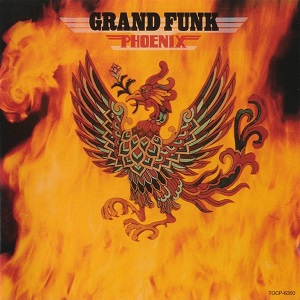Reading the BBC reports, Tunisia is not a bunch of blog- and tweet-happy néo-démocrates. In fact, things French in Tunisia are being targeted in today’s riots. Prisons are burning, as well. We don’t yet know who the real president of Tunisia is – two different claimants to that role have yet to resolve the situation. If they’re able to come to a peaceful arrangement, whoever becomes the undisputed president will have a tall order in trying to restore calm and security.
And all this in a nation that Western leaders didn’t have on their lists of evil nations. Ben Ali was our dictator, after all. We could do business with him. We weren’t deliberately trying to undermine his regime, as far as I know…
But down it went. Obama and Hilary Clinton are quick to condemn Tunisia now, after its West-friendly dictator has fallen, but where was their stern disapproval before all this? Are they going to now step up their criticisms of other dictators that the US has helped prop up over the years?
More to the point, are those dictators going to wait for the US to start criticizing them? If I were in charge of a US-friendly nation, I’d be on the phone to Iran, China, and Russia right now to find out how to better oppress my people. I’d have to assume I’d need to do things to keep the domestic situation in order right now that my buddies in Brussels and Washington are going to strongly disapprove of.
I know whoever has the backing of Tunisia’s army will embark on a program of busting heads that get in the way of law and order. He’ll have to, or he won’t be able to rule. People are not going to like what will happen next in Tunisia, and Twitter and Facebook won’t forestall the bloodshed.
I see questions of “will this happen again?” Probably. The world’s in a mess. But what happens in the West when we start to feel like we’re being spammed with images, videos, and status updates from hordes of rebelling masses?
 Let it be known that I’m not a fan of country music as it exists today. When I think of country, I think of the Texas Outlaws of the 70s, among other classic acts like Johnny Cash and Patsy Cline. The Texas Outlaws were my first real venture into country that paid off, though, so I keep a special place for them, particularly Rusty Wier.
Let it be known that I’m not a fan of country music as it exists today. When I think of country, I think of the Texas Outlaws of the 70s, among other classic acts like Johnny Cash and Patsy Cline. The Texas Outlaws were my first real venture into country that paid off, though, so I keep a special place for them, particularly Rusty Wier. Back in 1988, I thought I’d totally lucked out. I got a job writing for the Daily Texan, the UT-Austin student paper, and worked in the entertainment department. Instead of writing hard-hitting journalism pieces about the news of the day, I got to type in club listings for the weekend guide and do record reviews. That last part meant free vinyl.
Back in 1988, I thought I’d totally lucked out. I got a job writing for the Daily Texan, the UT-Austin student paper, and worked in the entertainment department. Instead of writing hard-hitting journalism pieces about the news of the day, I got to type in club listings for the weekend guide and do record reviews. That last part meant free vinyl. Herb Alpert Presents Sérgio Mendes and Brasil ’66… the first album from Sérgio Mendes and Brasil ’66, hence the “presents” in the title. This album went platinum in the USA with the catchy opening track, “Mas Que Nada.” I can hear why, too. It’s a great vocal mix on top of a tight support band. Lani Hall’s vocals are amazing on this release and there’s much to recommend in Mendes’ arrangements and stylings.
Herb Alpert Presents Sérgio Mendes and Brasil ’66… the first album from Sérgio Mendes and Brasil ’66, hence the “presents” in the title. This album went platinum in the USA with the catchy opening track, “Mas Que Nada.” I can hear why, too. It’s a great vocal mix on top of a tight support band. Lani Hall’s vocals are amazing on this release and there’s much to recommend in Mendes’ arrangements and stylings. I had no idea this was Billy Squier’s second solo album. I thought it was his first. Turns out, it was his monster release that kinda overshadowed all his other work. It’s a monument of rock and shouldn’t be missed.
I had no idea this was Billy Squier’s second solo album. I thought it was his first. Turns out, it was his monster release that kinda overshadowed all his other work. It’s a monument of rock and shouldn’t be missed. I’m sick, it’s Monday, I need to do a disappointment review… Time for Grand Funk to face the music.
I’m sick, it’s Monday, I need to do a disappointment review… Time for Grand Funk to face the music. This documentary has been playing on LinkTV, but you can watch it all online with 1:15 at the beginning with a reference to Santo, the great originator of the social crusader Luchador, at
This documentary has been playing on LinkTV, but you can watch it all online with 1:15 at the beginning with a reference to Santo, the great originator of the social crusader Luchador, at